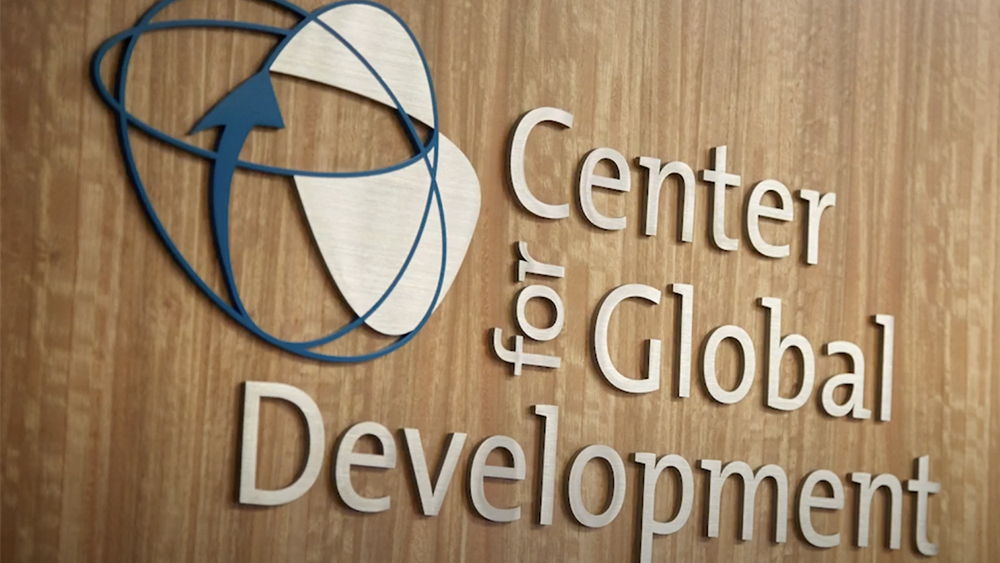Enligt en studie från tankesmedjan Center for Global Development är Sverige det rika land som gör mest för utvecklingen i fattiga länder, följt av Frankrike och Norge. Också inom migrationsområdet kommer Sverige först, följt av Turkiet och Chile, bland annat på grund av den stora mängden flyktingar som de två sistnämnda länderna tagit emot.
Studien, som är gjord av ”The Center for Global Development”, mäter hur höginkomstländers policies förbättrar livet i låginkomstländer. Sverige hamnar i topp, följt av Turkiet på andra plats och Chile som god trea. Mätstickan fokuserar på bra samhällstyre, välstånd och säkerhet inom åtta policyområden: finans, investeringar, migration, handel, hälsa, miljö, säkerhet och teknologi.
”Commitment to Development (CDI)”-indexet inkluderar i år för första gången också hälsa.
– Turkiets mottagande av syrianska flyktingar innebär att landet gör proportionerligt mer än det som kan förväntas av landet, givet både sin medelinkomst och befolkningsstorlek, säger Lee Robinson, forskare och medförfattare av studien.
Glad är också Sveriges biståndsminister som twittrar:
Ian Mitchell är projektledare och CGD:s biträdande chef för utvecklingssamarbete i Europa:
– Migration är ett verkningsfullt verktyg för fattigdomsbekämpning så CDI belönar länder som välkomnar migranter från fattigare länder, tar emot en stor andel kvinnliga migranter, accepterar flyktingar, utformar bra integrationspolitik och går med i internationella konventioner som skyddar migranters rättigheter, konstaterar han.
Sverige toppar rankningen för tredje gången i rad, landet hamnade överst även 2018 och 2020. Grekland har klättrat tjugotre placeringar sedan förra året och Chile har avancerat arton platser på listan, mycket på grund av stora flyktinginflöden från Venezuela och Haiti. Jordens flyktingar fördelas ojämnt; OECD-länderna har i genomsnitt fem flyktingar per ett tusen medborgare, Turkiet står som värd för över 40, Sverige nästan 25 och Österrike, Tyskland, Schweiz och Norge är värdar för över tio per ett tusen. Storbritannien motsvarande siffra är två och USA en.
Tomas Nordberg
Läs mer om rankningen (engelska)
The Commitment to Development Index (CDI) ranks 40 of the world’s most powerful countries on policies that affect more than five billion people living in poorer nations. The CDI focuses on development “spillovers,” or policies that affect the development prospects of countries beyond one’s own borders, and it covers eight distinct policy areas: development finance, investment, migration, trade, environment, health, security, and technology. The detailed methodology can be found here.
The CDI has been a CGD flagship since its launch in 2003. Last year, the CDI was revamped following a two-year holistic review of what matters to development in 2020 and beyond. We have updated our thinking on the most relevant measures and expanded the CDI’s country coverage to reflect the importance of large countries within and beyond the G20 in the global economy and their influence on development in poorer countries. We included nine middle-income countries, the first time the CDI has gone beyond the high-income category in its coverage.
In the 2021 CDI, we add an eighth component: health. This recognises the importance of countries’ contributions to global health, not only in pandemic preparedness, but also across broader global health issues, like preventing antimicrobial resistance, engaging in international cooperation on tobacco, curbing pollutants and waste, and avoiding trade restrictions on health and medical goods.
Key Finding: Top Spots
European countries fill the top spots. Sweden tops this year’s CDI, followed by France in second and Norway in third place. Australia moves into the top five thanks to its performance on the health component, with strong pandemic preparedness and no export restrictions on medical goods or food. The UK completes the top five, ranking first on the security component and scoring strongly in development finance and trade, albeit before its recent cut in aid.
Key Finding: Income Adjusting
We include an option to “income adjust” scores: to assess countries on how their scores compare to an expected score based on their income level. In these results, Sweden also ranks top—doing much more than we’d expect for its income-level—but other countries shoot up the ranking. Portugal ranks second on our income-adjusted measure and South Africa ranks 9th. Czechia, Hungary, and Chile also significantly rise in the rankings when their income levels are taken into account, ranking 10th, 12th, and 13th respectively.
Key Finding: Environment Results
The CDI’s environment component provides a framework for assessing countries’ contributions on key environmental issues, including climate change. Measures are adjusted to account for differences in the size of countries’ populations and economies, to ensure comparisons are fair. We examine direct emissions as well as those embedded in international trade. We also look at fossil fuel subsidies and production, carbon pricing, and wider environmental measures of fishing subsidies and biodiversity agreements.
Sweden tops the environment component: its annual emissions of 5 tonnes of carbon dioxide (CO2) equivalent per head are half the CDI average (10.5) and it tops the carbon pricing indicator at $56 per tonne. France, Portugal, Spain, and Chile complete the top five. India continues to have the lowest emissions per capita, which have fallen even further since 2020.
The lowest ranking countries on environment—Canada, the United States, Australia, UAE, and Luxembourg—each emitted 20 tonnes of CO2 per capita or more.
Key Finding: Health Results
Finland, Sweden, and Japan top the health component. Each scores strongly on preventing antimicrobial resistance (AMR) and imposed virtually no restrictions on medical or food supplies in the last year. Finland and Japan also score strongly on pandemic preparedness. Australia and Saudi Arabia complete the top five, with the former leading on pandemic preparedness and the latter doing relatively well on AMR and signing onto all health treaties and bodies we assess.
The CDI highlights that most countries have long ignored epidemic preparedness: only 13 CDI countries ever completed a Joint External Evaluation with the World Health Organization (WHO) and over half have not updated their national influenza plans for over a decade. Similarly, nearly a quarter of countries (9/40) have not approved a national action plan that reflects the objectives of WHO’s Global Action Plan on Antimicrobial Resistance. A further 28/40 countries do not meet the WHO target and herd immunity threshold of 95 percent for measles vaccination coverage.
Key Finding: China
China, the world’s second-largest economy, ranks 36th overall in how its policies contribute to development relative to its size. It lags behind the US in its commitment to development, ranking 36th. China is in the top half on technology (17th) but it has low-quality development finance and ranks in the bottom five on both migration and security.
Surprisingly, while China is a major lender to developing countries, it ranks 38th on development finance, largely because our measure looks at the degree of subsidy in China’s annual lending and compares to the size of its economy, rather than the significant face value of China’s loans. China’s development finance also scores poorly on our quality measure.
Key Finding: Development Finance Results
Our measure of Finance for International Development includes quantity and quality. The quantity measure isolates the grant equivalent aspects of aid to measure pure philanthropic giving. Luxembourg tops the development finance component, scoring well on both quantity (providing just under 1 percent of GNI as FID) and quality. Turkey provides the most relative to its GNI, and as Syria receives most of its development finance, its scores well on the poverty and fragility focus. Belgium and Ireland top the quality subcomponent based on their strong focus on poor countries, and South Africa substantially improves its quality score for the same reason with its recent support to South Sudan.
The United States comes in mid-table on development finance, at 18th. It provides the most development finance in absolute terms, but it is less generous relative to the size of its economy, providing 0.16 percent of GNI. The median EU country provides almost double this, 0.35 percent.
China scores poorly on both quantity and quality. Financial flows from China are large but their concessionality is either low or in doubt. China is the least transparent provider of finance, though it recently committed to developing a modern statistical information system.
Key Finding: Middle-Income Countries
Policies in major middle-income economies are increasingly important to other countries’ development, and the CDI covers all G20 countries, including Argentina, Brazil, China, India, Indonesia, Mexico, Russia, South Africa, and Turkey. South Africa ranks highest among this group with relative strengths in migration, trade, security, and technology. Turkey scores strongly on development finance and migration, largely reflecting the challenges of the Syrian war. Indiaranks 6th on the environment component, with low emissions per head, and it has signed on to each of the six international agreements we assess.


